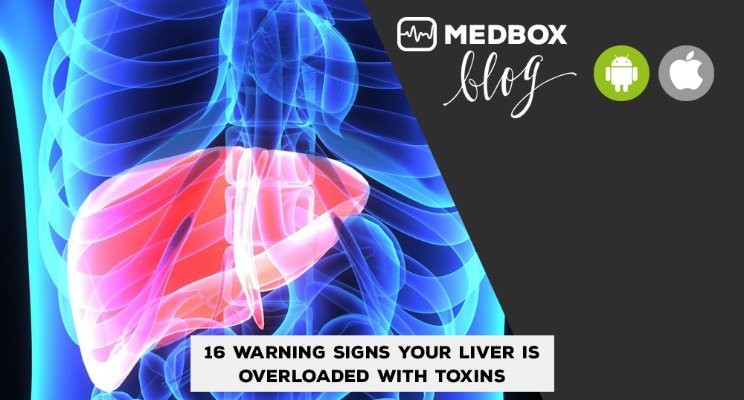The main function to the liver is to clean the body from toxins, i.e. it turns the toxins into a waste that is then expelled from the organism through the urine. That is why the liver is a very important organ and needs to be healthy in order to work properly at all times.
How the Liver Functions
The liver performs body detox in two stages:
The enzymes in the liver neutralize the poisonous effect of toxins, making them less harmful to the organism.
Next, the liver combines these toxins with other chemical compounds to make them soluble in water, and thus more easily removed from the body.
Toxins enter our bodies from the environment – the air, cars, water, plastic, and factories are the most important sources. You cannot avoid being exposed to toxins, no matter how healthy your way of life is. Even if you are physically active, eat a balanced diet, or drink only purified water.
When the liver gets ‘lazy’, the toxins cannot be efficiently expelled from the body and accumulate in the fatty tissue. Sometimes, this might be a reason why you cannot lose weight no matter how hard you try.
The good news is that there are signs when the liver’s function has decreased. If you learn how to recognize them, you’ll be able to react on time and avoid more extensive damage.
Signs of a ‘Lazy’ Liver
- Allergies
- Dizziness and lightheadedness
- Extreme tiredness
- Excessive sweating
- Trouble digesting fats
- Mood swings, anxiety, and depression
- Severe migraines and headaches
- Skin problems
- Stomach problems including diarrhea, gasses, constipation, stomachache, bloating
- Bad breath
- Removed gall bladder
- Hormonal imbalance
- Pain in the joints or muscles
- Multiple chemical sensitivity
- Unexplained weight gain
If you notice one or more of the above-listed symptoms, you should clean your liver by changing the diet first. Focus on healthier foods like fruits and vegetables, stop eating refined and processed foods, and balance your portions.
How to Clean the Liver
- Focus on organic ingredients and avoid GMO foods
- Stop consuming all types of refined sugars including white, brown, beets, and cane sugar, as well as cane juice and its crystals
- Avoid alcohol whenever you can
- Drink plenty of water
- Balance your diet – increase the intake of ‘good’ fats, fermented foods, natural animal and plant proteins, sprouted grains, seeds, raw nuts, and whole foods.
- Eat more leafy green veggies which are high in B, C and K vitamins, as well as minerals like magnesium and folate.
- Increase the sulfur intake by eating more kale, garlic, onions, asparagus, broccoli,
- Brussels sprouts, and free range eggs.
- Avoid consumption of refined oils and oils that are highly inflammatory like vegetable oil, soybean, corn, cotton seeds, canola, safflower, and sunflower.
- Replace the above-mentioned oils with healthier fat alternatives like coconut oil, ghee, palm oil, avocado oil, and grass-fed butter.
- Increase the intake of foods rich in amino acids such as beets, parsley, spinach, cabbage, free range eggs, and chicken.
- Limit the fructose intake to a maximum of 25 grams a day.
- Increase the intake of dietary fiber (35 grams a day) by eating Brussels sprouts, broccoli, artichokes, avocado, flax seeds and chia seeds.
The foods described below should become an integral part of your diet because they are the best for cleaning and restoring the liver.
